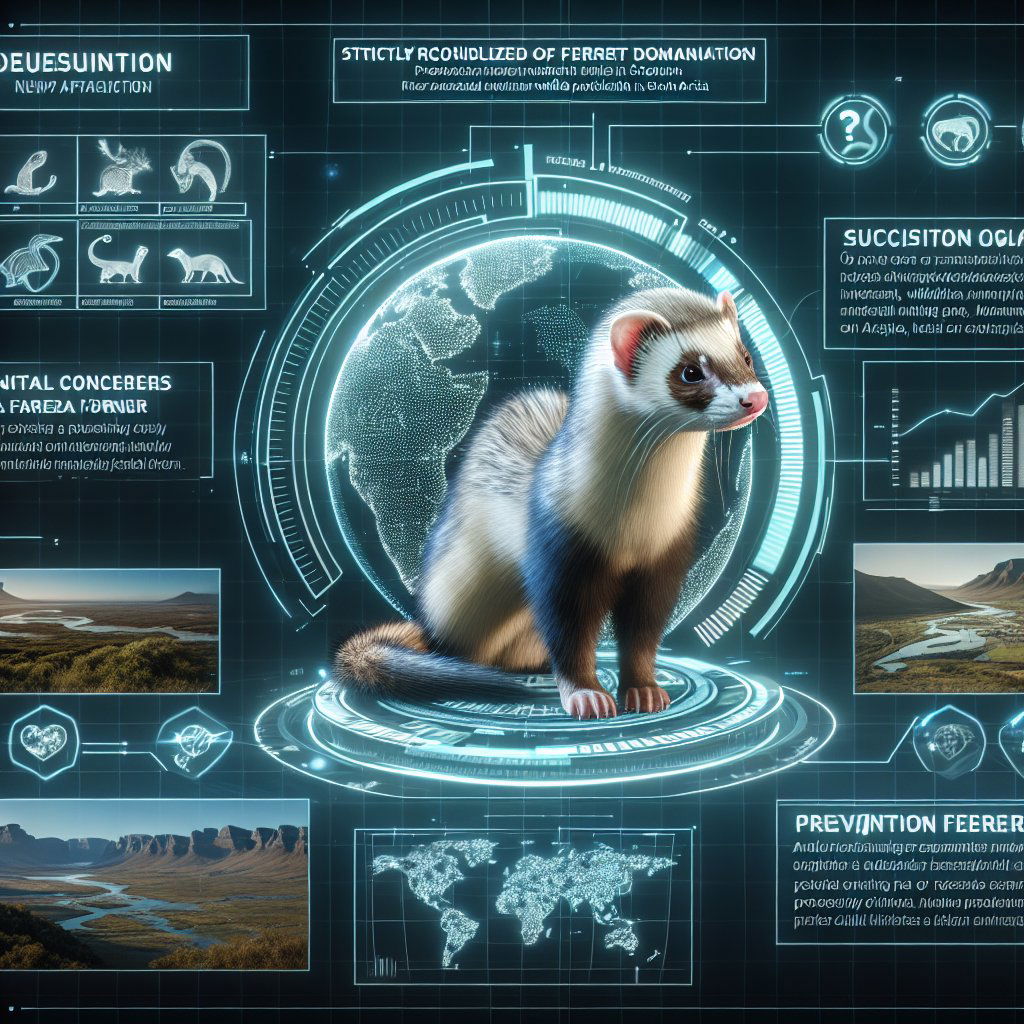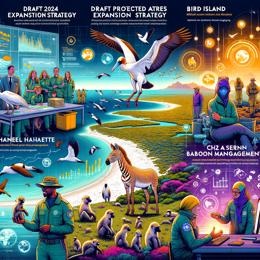Image created by AI
CapeNature Issues Ferret Ownership Warning Amidst Conservation Concerns
CapeNature, the public institution responsible for biodiversity conservation in the Western Cape, has recently raised concerns over the growing trend of keeping ferrets as pets in South Africa. While the adventurous nature of South Africans leads some to consider these lively creatures as household companions, CapeNature has warned against their ownership due to insufficient domestication, disease risks, and significant ecological threats.
Ferrets, scientifically known as Mustela furo, are relatively new to South Africa as domestic animals. Unlike dogs or cats, ferrets lack centuries of domestication, and as a result, there is limited research on the diseases they might carry. The concerns raised by veterinary professionals regarding the health of ferrets extend to potential diseases being spread to indigenous wildlife and humans.
Historical precedents in North America have shown disease spread through ferret importation, contributing to the decline of endangered species such as the black-footed ferret. Additionally, diseases like rabies and bovine tuberculosis have been found in ferret populations abroad, raising alarms about similar risks in South Africa.
Furthermore, CapeNature stresses the ecological consequences of feral ferret populations, drawing on examples such as New Zealand, where feral ferrets have caused high mortality rates among local wildlife.
Due to these reasons, acquisition, possession, and trade of ferrets in the Western Cape require strictly controlled permits. Any non-permitted activity involving ferrets can lead to legal actions under the Nature Conservation Ordinance. With an uptick in ferret encounters, both domesticated and feral, CapeNature's CEO, Dr. Ashley Naidoo, urges the public to collaborate in preventing wildlife crime and reporting illegal trade. The public can contact CapeNature or the CRIME STOP TIP-OFF-LINE to report suspicious activities.
In related conservation efforts, CapeNature reported the successful translocation of the Cape mountain zebras to Zebraskop and gratuitous access to provincial nature reserves during the annual Access Week. Such initiatives are part of CapeNature's mandate to protect the region's biodiversity through various conservation, community engagement, and awareness projects, including celebrations of International Vulture Awareness Day and contributions towards marine life protection.










